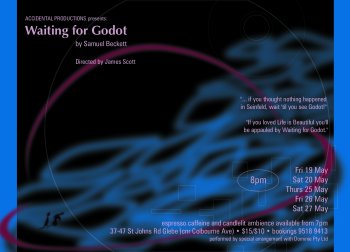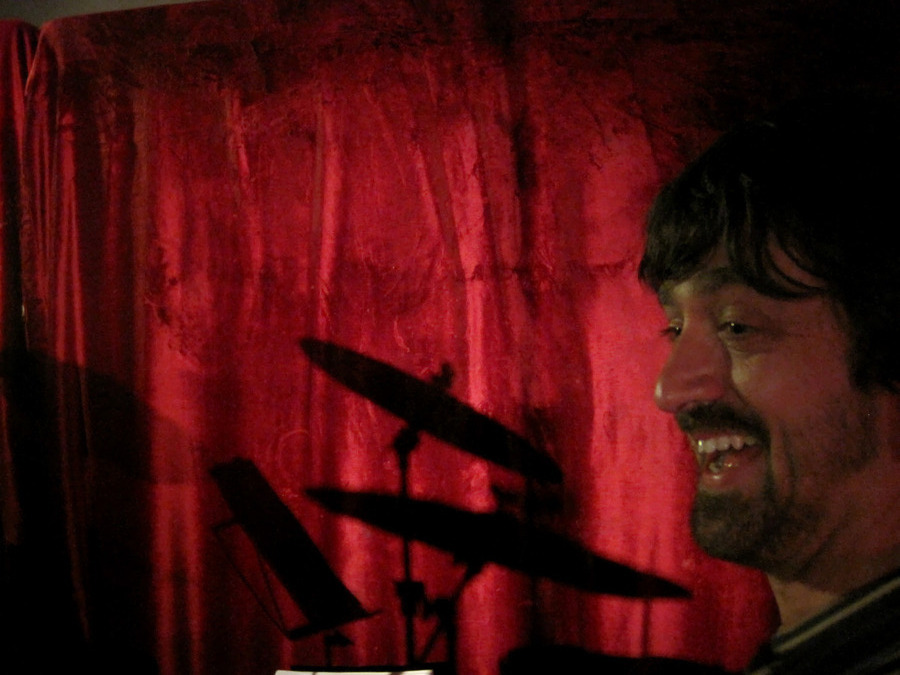
The 2000 season included a sell-out production of Waiting for Godot, which was part of the inspiration for our name.
19th - 20th - 25th - 26th - 27th May
Waiting for Godot
director - James Scott
Pozzo - Brian Mott
Lucky - Andrew Filmer
Lucky - Estragon (Gogo) Michael Lewis
Vladimir (Didi) - James Scott
With special thanks to The Actors College of Theatre and Television, Alison Avery, Cafe Church, Danes Gourmet Coffee, Mal Heap, Hot M, Ian Baldwin, Rick Bull, Sue Hanna, Cathy Kirkpatrick, Andrew Lorien, Spike Mason, Graham Meredith, Jon Ollis, Elizabeth Scott, Jacqui Winn.
Director's Notes
When I first read Waiting For Godot in 1988, the play astonished me. Apart from the sheer beauty of the language, and the play's perception of the human spirit, I loved the unashamed contrast between the prosaic and the ethereal. The play jumps around from philosophical dialogue to mundane questions of whether carrots are better than turnips, to plain old vaudeville comedy. It was also one of the funniest plays I had ever come across.
Another aspect of the play that intrigues me, and one that has caused many challenges in putting hte play on the stage, is the notion that a story line does not have to progress to be entertaining. Beckett shows that it is people and their reactions to situations that make plays exciting, not just the unfolding of a plot.
What I have tried to do in this production of the play is fuind the balance between hope and futility. Society is built around individuals having to wait. Be it for a train, a doctor's appointment, or for a live person on the bank's helpline, we experience waiting every day. It is what we do while waiting that colours our life.
I have also been interested in the major characters' levels of awareness of their situation and of an outside force on their lives - whether that force is God, Godot, or perhaps the playwright himself. Lucky seems hyper-sensitive to these forces, but he is unable to express this clearly. Vladimir understands that there is something out side his world, but never really knows that to do about it. Estragon is more interested in how it affects his baseic needs (God have pity on me! On me! On me!) And Pozzo seems blind to all spiritual issues, and this is made literal in the second act.
My hope is that you, the uaudience, will travel a spiritual journey through the play.
james scott

